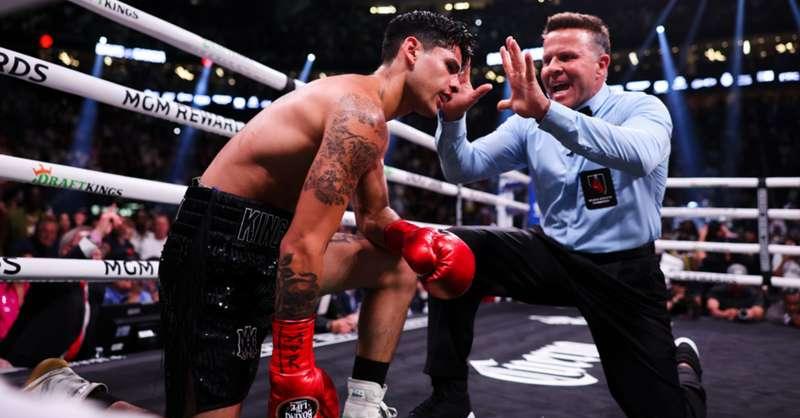Are you curious to know what is a rehydration clause? You have come to the right place as I am going to tell you everything about a rehydration clause in a very simple explanation. Without further discussion let’s begin to know what is a rehydration clause?
In the world of combat sports, contractual agreements between fighters and promoters play a crucial role in ensuring fair competition and maintaining athlete safety. One contractual provision that has gained attention in recent years is the rehydration clause. In this blog post, we will delve into the concept of the rehydration clause, its purpose, potential implications, and its significance in the realm of combat sports.
What Is A Rehydration Clause?
A rehydration clause is a contractual agreement that restricts or regulates the amount of weight a fighter can gain back after the official weigh-in before a match. It sets a maximum weight limit or a specific percentage increase that fighters must adhere to in order to prevent excessive weight cutting practices and promote fighter safety.
Purpose And Rationale:
The primary purpose of a rehydration clause is to address the potential risks associated with extreme weight cutting in combat sports. Weight cutting, the practice of temporarily shedding significant amounts of weight prior to weigh-ins to compete in a lower weight class, can have severe physical and performance implications.
By imposing a rehydration clause, promoters aim to discourage extreme weight cutting and ensure that fighters enter the ring or cage in a healthier and more hydrated state. This can help prevent dehydration-related complications, minimize the impact on performance, and prioritize the well-being of the athletes.
Potential Implications And Controversies:
While the intentions behind implementing a rehydration clause are well-meaning, its application can generate debates and controversies within the combat sports community. Here are some potential implications and considerations:
- Competitive Advantage: Critics argue that rehydration clauses can create an imbalance between fighters, as some athletes may have a natural advantage in rehydrating more efficiently than others. The limit imposed by the clause may restrict certain fighters who struggle with rehydration from competing at their full potential.
- Health and Safety: Proponents of the rehydration clause argue that it prioritizes athlete safety by discouraging dangerous weight-cutting practices. By preventing excessive dehydration and rapid rehydration, the clause aims to minimize the potential risks associated with extreme weight cutting, such as organ damage, compromised performance, and increased injury susceptibility.
- Monitoring and Compliance: The effective implementation of a rehydration clause requires careful monitoring and compliance. Promoters and athletic commissions must enforce weigh-in protocols and closely monitor fighters to ensure they adhere to the stipulated weight limits and percentage increases. Failure to comply may result in penalties or disqualification.
- Evolving Practices: Combat sports organizations and athletic commissions continually assess and refine their rules and regulations, including rehydration clauses. They take into account feedback from fighters, medical professionals, and the evolving understanding of weight cutting practices to strike a balance between fair competition and athlete safety.
Conclusion:
The rehydration clause represents an effort within combat sports to address the risks associated with extreme weight cutting and promote athlete safety. By setting limits on the amount of weight fighters can regain after the weigh-in, the clause aims to discourage dangerous practices and promote healthier hydration levels during competition.
While the implementation of rehydration clauses can generate debates and controversies, it reflects a broader recognition within the combat sports community of the importance of athlete well-being. As the landscape of combat sports continues to evolve, it is essential for promoters, athletic commissions, and fighters to collaborate and strike a balance that ensures fair competition while safeguarding the health and safety of the athletes who inspire and entertain us in the world of combat sports.
Learn more about similar topics like these on Clynerr
FAQ
What Is The Rehydration Clause For Garcia Davis?
Their fight has been made at a catchweight of 136lbs and a rehydration clause means they can’t weigh more than 10lbs over that limit on the morning of the fight. “You looked drained,” Garcia said, pointing at Davis when they faced off.
Why Is There A Rehydration Clause?
The boxing rehydration clause
In theory, one or both of the fighters could make the weigh-in and then pile on the pounds to gain a huge advantage over his/her opponent. So a rehydration clause stops one or both fighters from making themselves a lot heavier and potentially putting their opponent in danger.
What Is The 10 Pound Rehydration Clause?
Following their matchup, Ryan Garcia was asked regarding the role of the 10 lbs rehydration clause. The clause dictated that while both fighters would weigh in at 136 pounds after cutting weight, they would not be allowed to gain over 10 lbs until the fight.
What Is Jake Paul Rehydration Clause?
Therefore, a hydration clause, in the case of the KSI vs Jake Paul match, means that the two would be limited on how much they are able to put back on between the weigh-in 24 hours prior and the actual fight itself.
I Have Covered All The Following Queries And Topics In The Above Article
What Is A Rehydration Clause In Boxing
What Is A 10 Pound Rehydration Clause
What Is A Rehydration Clause In A Boxing Match
What Is A Rehydration Clause Boxing
What Is A No Rehydration Clause
What Is A Rehydration Clause
What are rehydration clauses in boxing
What is a rehydration clause?
